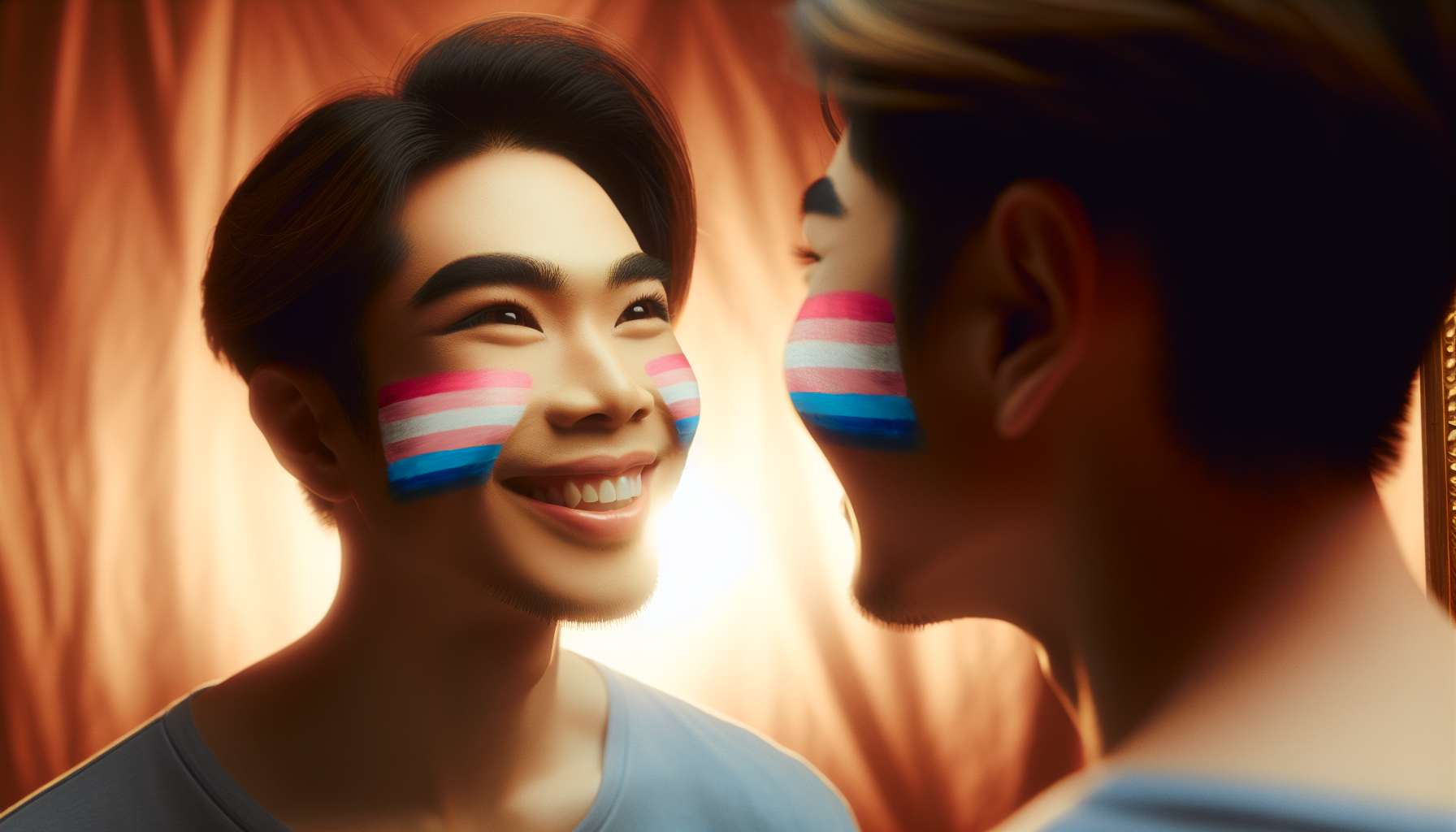Transgender people represent an essential and often misunderstood part of the LGBTQ+ community. The term “transgender” refers to individuals whose gender identity differs from the sex they were assigned at birth. This includes binary transgender people (trans men and women) as well as non-binary people, who do not strictly identify as either male or female.
Gender identity is a deep and intimate feeling, which is not reduced to biological characteristics. It is separate from sexual orientation: a trans person can be heterosexual, homosexual, bisexual, pansexual, asexual… Contrary to a common misconception, being trans is not a “choice” or a “whim”. It is a lived experience, often described as an incongruence between the body and the deep identity.
The journeys of trans people are multiple and unique. Some start a transition, which can be medical (hormone treatment, surgeries), social (change of name, pronoun, gender expression), legal (change of civil status). Others do not feel the need to modify their bodies. There is no typical journey or “right” way to be trans. The main thing is to respect each person’s self-determination.
Historically, trans people have been pathologized and discriminated against. Until 2018, transidentity was classified as a mental illness by the WHO. Even today, in many countries, the change of civil status is conditioned on heavy and invasive medical procedures, such as sterilization. Trans people face alarming rates of violence, insecurity, suicidality. They struggle to access appropriate and respectful care, due to the lack of training of health professionals.
However, trans people have always existed and resisted. In many traditional cultures, such as among the Hijras in India or the Two-Spirit among Native Americans, trans identities were recognized and respected. Figures like Marsha P. Johnson and Sylvia Rivera, black trans women and early activists, played a key role in the Stonewall riots and the birth of the modern LGBTQ+ movement. Today, personalities like Laverne Cox, Janet Mock or Elliot Page contribute to a greater visibility and acceptance of trans journeys.
Despite these advances, much remains to be done to guarantee the rights and dignity of trans people. Laws such as the one on the depathologization of transition journeys in France are essential. The fight against conversion therapies, which claim to “cure” transidentity, is a major issue. Access to reimbursed and quality transition care must be guaranteed. Initiatives like the Trans Day of Remembrance (TDoR) allow us to honor the memory of murdered trans people and raise awareness about transphobia.
As an LGBTQ+ coach, it is crucial to be aware of these realities to better support trans people. This involves training on the specific issues of transidentity, using the right pronouns and names, not asking invasive questions about anatomy or operations. It also means knowing how to direct people to relevant community resources, such as the OUTrans, ACTHE or Chrysalide associations in France. The goal is to create a safe and caring space, where each trans person can explore and affirm their identity with confidence.
Key points to remember:
– The term “transgender” refers to individuals whose gender identity differs from the sex assigned at birth, including binary and non-binary transgender people.
– Gender identity is a deep and intimate feeling, separate from sexual orientation and biological characteristics. It is not a choice.
– Transition journeys are multiple and unique to each trans person. The main thing is to respect each person’s self-determination.
– Historically pathologized and discriminated, trans people face high rates of violence, insecurity and difficulties in accessing adapted care.
– Trans people have always existed and resisted. Figures like Marsha P. Johnson and Sylvia Rivera played a key role in the LGBTQ+ movement.
– Legislative progress and better visibility contribute to the acceptance of trans journeys, but much remains to be done (depathologization, access to care, fight against conversion therapies…).
– As an LGBTQ+ coach, it is crucial to get trained on trans issues, to use the right terms, to not be intrusive and to guide towards community resources to create a safe and caring space.
👉 To download docx (Editable) file click here : Click here
👉 To download PDF file click here : Click here
👉 To download MP3 file click here : Click here







